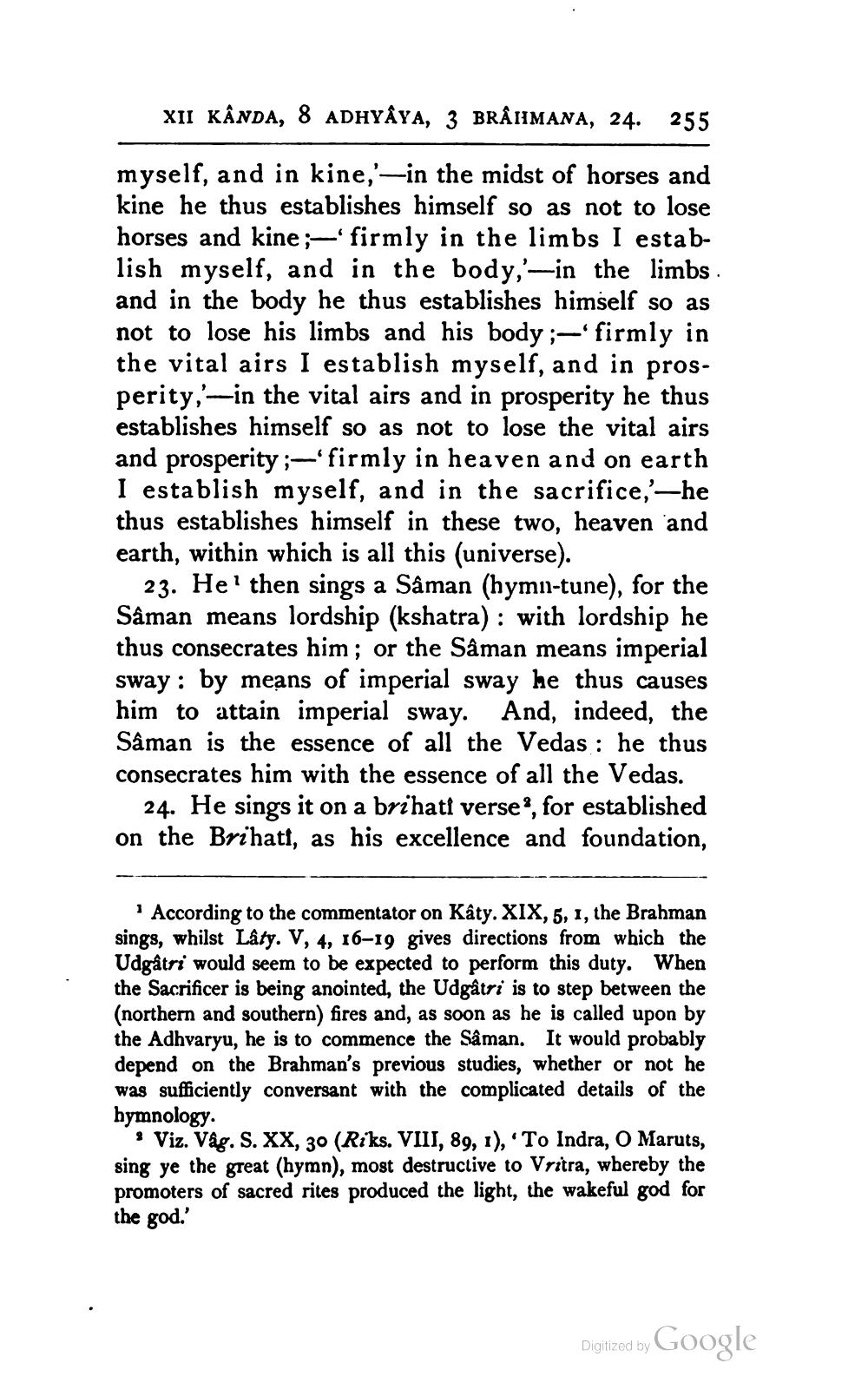________________
XII KÂNDA, 8 ADHYÂYA, 3 BRÂHMANA, 24. 255
myself, and in kine,'-in the midst of horses and kine he thus establishes himself so as not to lose horses and kine;-'firmly in the limbs I establish myself, and in the body,'-in the limbs. and in the body he thus establishes himself so as not to lose his limbs and his body ;-'firmly in the vital airs I establish myself, and in prosperity,--in the vital airs and in prosperity he thus establishes himself so as not to lose the vital airs and prosperity ;-'firmly in heaven and on earth I establish myself, and in the sacrifice,'-he thus establishes himself in these two, heaven and earth, within which is all this (universe).
23. He then sings a Sâman (hymn-tune), for the Sâman means lordship (kshatra) : with lordship he thus consecrates him; or the Sâman means imperial sway : by means of imperial sway he thus causes him to attain imperial sway. And, indeed, the Sâman is the essence of all the Vedas : he thus consecrates him with the essence of all the Vedas.
24. He sings it on a brihati verse?, for established on the Brihati, as his excellence and foundation,
According to the commentator on Kâty. XIX, 5, 1, the Brahman sings, whilst Lâty. V, 4, 16-19 gives directions from which the Udgâtri would seem to be expected to perform this duty. When the Sacrificer is being anointed, the Udgâtri is to step between the (northern and southern) fires and, as soon as he is called upon by the Adhvaryu, he is to commence the Sâman. It would probably depend on the Brahman's previous studies, whether or not he was sufficiently conversant with the complicated details of the hymnology.
Viz. Vág. S. XX, 30 (Riks. VIII, 89, 1), To Indra, O Maruts, sing ye the great (hymn), most destructive to Vritra, whereby the promoters of sacred rites produced the light, the wakeful god for the god.
Digitized by Google




